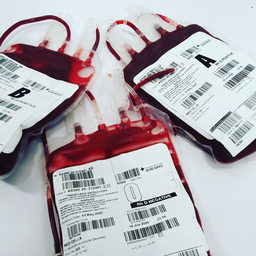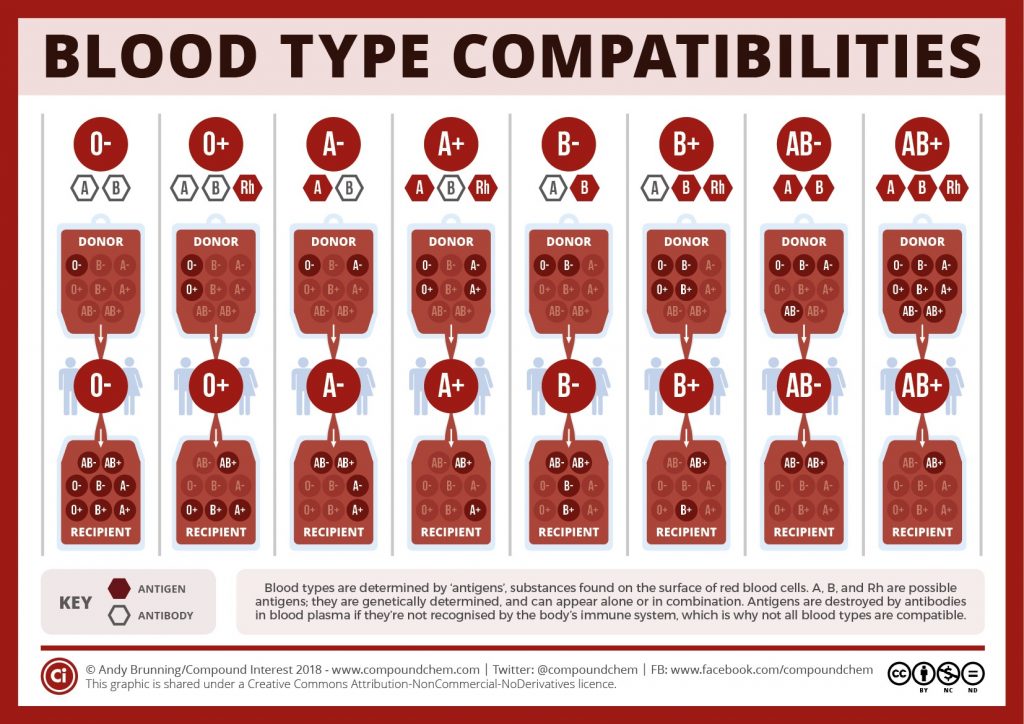What's Your Type? Why You Need to Know Your Blood Type

In recent years dozens of vitamin and news stations have done public surveys and found that at least 1 in 3 of their American survey pool does not know their blood type. Although individual blood type should be kept top of mind, many only find out when it is for a medical emergency or blood transfusion. So before you even continue reading, let this be the sign to talk to your doctor about your blood type.
Now, let us move into why you need to know your blood type and the different blood types. Below is a graph that explains the different blood types and which blood types are a match if blood is needed.

Four blood types: O, A, B, AB
O- Blood Type: Can receive O- (Can give to Everyone)
O+ Blood Type: Can receive O- and +O (Can give to O+, A+, B+, AB)
A- Blood Type: Can receive A-, O- (Can give A+, A-, AB+, AB-)
A+ Blood Type: Can receive A+, A-, O+, O- (Can give A+, AB+)
B- Blood Type: Can receive B-, O- (Can give B+, B-, AB+, AB-)
B+ Blood Type: Can receive B+, B-, O+, O- (Can give B+, AB+)
AB- Blood Type: Can receive A-, B-, AB-, O- (Can give AB+, AB-)
AB+ Blood Type: Can receive Everyone (Can give AB+)
When it comes to donating blood, knowing your blood type can be helpful in knowing who can receive your blood. Knowing your blood type and your immediate family can be life-saving if an emergency happens and a transfusion is needed. Knowing your blood type can also help when it comes to monitoring certain diseases that may be higher for certain blood types. For example, one study by the Harvard School of Public Health study found that heart disease may be linked to certain blood types such as A, B, and AB. Understanding your blood type is necessary to understanding your overall health and something that should be asked at your next appointment.
Site content is provided for informational purposes only and is not intended to be a substitute for professional medical advice, diagnosis, or treatment.


